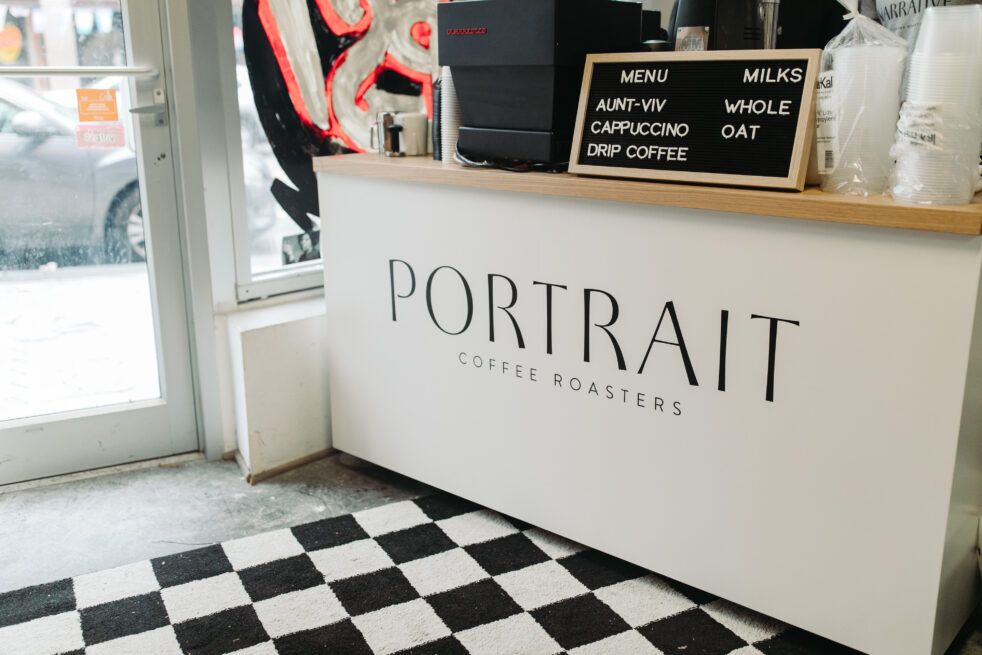On Monday, Jan. 18, as a part of the Martin Luther King Jr. Day of Service event, co-founder of Portrait Coffee John Onwuchekwa spoke about his company’s impact on the community and advice for students.
Portrait is located in southwest Atlanta, nestled in the historically Black neighborhood of West End.
The company’s namesake reflects the full story that goes into every cup of coffee.
“Underneath the iceberg of the coffee shop, middle schoolers in the West End can see the exporting, the production of coffee.
They can see the beauty of what can come out of a community like this when opportunity is created,” said Onwuchekwa.
Onwuchekwa’s journey to being a coffee-lover was a long one.
“I used to live my life by these arbitrary rules, one being ‘I don’t drink hot liquids,’” said Onwuchekwa.
Upon trying coffee during a desperate moment, he decided that it wasn’t bad and learned everything he could about the coffee-making process.
While travelling to different coffee shops across the United States, Onwuchekwa felt that other customers seldom looked like him.
“There were all these guys with beards and flannels, and it felt like this wasn’t a place for me,” said Onwuchekwa. “As a Black man in America, it felt like so many other interests of mine — unrepresentative.”
Looking into the history of coffee, Onwuchekwa learned of its origins in Ethiopia and decided he wanted to spend part of his life ‘pouring’ a different narrative.
“We want to change the image in people’s minds when they think of specialty coffee,” said Onwuchekwa. “People look at the West End, at my neighbors, and form an opinion on them based on what the news reports.
The narrative that starts to perpetuate in our minds is that our neighbors are just the products of a hundred personal decisions they make.
This is not the case at all. We want to tell stories that increase compassion and decrease irrational fear about communities different from our own.”
Part of Portrait’s mission is to bring to light the inherent inequality built into the city of Atlanta.
“Geography is never an accident,” said Onwuchekwa.
“I used to get on MARTA at the airport station and ride north. At the airport, the train was predominantly Black, but as you got to North Springs, the inside of the train changed, as did the outside.
The economic conditions of the West End train and the Sandy Springs train were different. The result is that Black people living in the West End neighborhood have to get off the train before they can take advantage of the economic opportunities in other places.”
Onwuchekwa described the similarity between the spatial layout of Atlanta in relation to race and that of the process of coffee.
“The same thing happens with black and brown folks on the equator who harvest the coffee but can’t take advantage of the opportunities in other places.”
Onwuchekwa described the similarity between the spatial layout of Atlanta in relation to race and that of the process of making coffee.
“The same thing happens with black and brown folks on the equator who harvest the coffee but can’t take advantage of the opportunities the coffee brings,” said Onwuchekwa.
Onwuchekwa related in detail his advice on making visible change.
“Nobody changes the world by trying to change the world in one fell swoop. It’s the small, consistent things that matter,” said Onwuchekwa.
Onwuchekwa was asked how students could better prioritize positive, long-term change.
To answer, he began by speaking of the inverse relationship between the speed of change and the longevity of impact.
“Rome wasn’t built in a day. The only thing you can do with Rome in a day is burn it,” said Onwuchekwa. “We prioritize not changing the world but becoming the type of person who wants to change the world.”
He also emphasized the importance of keeping your change centered and local.
The smaller one can keep their center, the more potent their impact, according to him.
For students wanting to explore the impact they can make on Atlanta, Onwuchekwa recommends several different ways to get connected.
“Insert yourself into a community where you don’t even understand its problems. Explore. Ask how you can serve them. Come in and listen, and let someone else shape the agenda. Even though we come from worlds apart, we realize we’re more similar than we thought,” said Onwuchekwa.
The shop opened at the very beginning of the COVID pandemic.
Onwuchekwa says that actually helped with their expansion.
“[We realized] that if people weren’t commuting to work, we could find a way to bring [the coffee] right to their doorsteps,” said Onwuchekwa.
Onwuchekwa explains that Portrait Coffee has served as an introduction to specialty coffee for some customers.
Looking forward, Portrait aims to open the shop’s cafe and to put out more story-telling content this spring.
As for their best coffee, Onwuchekwa recommends “Toni”, named after celebrated author Toni Morrison, for those who enjoy a nutty and savory flavor.
On the fruitier side, he recommends the Ethiopian Guji.
